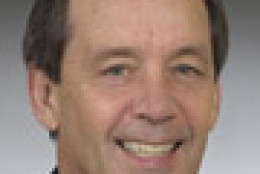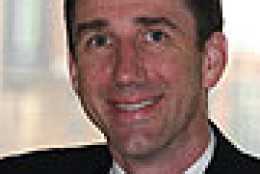SES
-
Members of the Senior Executives Service take heed: Not all reforms are bad, painful or even likely to occur, says Senior Correspondent Mike Causey.
February 10, 2015 -
Members of the Senior Executive Service have had a rough year or two. Now political leaders from both the White House and Congress offer up ways to improve the SES. There's the mundane, such as the White House is launching a candidate development program. And the punitive — legislation that would make it easier to fire SES members when things go wrong. Today, Federal News Radio launches a special series called "Fixing the SES." We'll bring you the voices of those who know the system best — current and former SES members. We start with former acting IRS Commissioner Danny Werfel. He was an SES member before becoming a political appointee. He's now an outside consultant. On the Federal Drive with Tom Temin, Werfel told reporter Emily Kopp that SES members are older and under more stress than ever before.
February 09, 2015 -
Fewer than half of the Senior Executive Service members who responded to an exclusive Federal News Radio online survey say they would join today. The survey results were even more dim for federal employees at the GS-15 and GS-14 ranks. In the first of our four-part special report, Fixing the SES, we examine how current senior execs feel about the SES, and what they believe is right and wrong with the service.
February 09, 2015 -
Sometimes, the secret to getting things done is as simple as including the word "reform" in your proposal, says Senior Correspondent Mike Causey.
February 05, 2015 -
Respect for federal agency leaders continues to fall. The last few Federal Employee Viewpoint Surveys say rank-and-file employees don't respect their upper level leaders as much as they used to. Executive Core Qualifications are supposed to help senior executives maintain high leadership standards, but they might be too easy to follow. Bob Tobias, professor of Key Executive Leadership Programs at American University, is also a former member of the Internal Revenue Service Oversight Board. He tells In Depth with Francis Rose about ways to improve the Executive Core Qualifications to build better agency leaders.
February 02, 2015 -
A 1.3-percent pay raise, reforms to the Senior Executive Service and increased emphasis on employee feedback are just some of the initiatives proposed in President Barack Obama's 2016 budget.
February 02, 2015 -
House Veterans Affairs Committee Chairman Jeff Miller wants new ways to punish SES members accused of misconduct, including possible pension reductions, limits on paid leave. He also wants to curtail VA's bonus award system.
January 23, 2015 -
With fewer SES awards being handed out, Carol Bonosaro, president of the Senior Executives Association, wonders whether executives are performing less well than they did in years past or if the standards simply have gotten too tough?
January 13, 2015 -
"Hope" is a critical word for the senior executive service going into 2015, according to Senior Executives Association President Carol Bonosaro. That hope stems from President Barack Obama's recent address to the SES and his management agenda. But reality might stand in the way of financial and management progress at your agency. She shared her Top 3 for 2015 on In Depth with Francis Rose. Carol expects low morale to continue because of a not-so-new Congress.
January 06, 2015 -
Millennials make up about 7 percent of the federal workforce. About 61 percent of millennials who do work for the government say they're satisfied with their jobs. But the median time they stay at those jobs is just under four years. That's according to results in the 2014 Federal Employee Viewpoint Survey. Tim McManus is vice president for education and outreach for the Partnership for Public Service. He shared his Top 3 for 2015 on In Depth with Francis Rose. He told Federal News Radio's Nicole Ogrysko he's optimistic government can do more to attract more millennials to the federal workforce, but it needs to overcome a few challenges first.
January 02, 2015 -
Carol Bonosaro, president of the Senior Executives Association, will give her thoughts on President Barack Obama's speech to members of the Senior Executives Service. December 31, 2014
December 31, 2014 -
As agencies decide on a two-year plan for structuring their senior executive workforce, one agency head says that the Office of Personnel Management is keeping some of the best and brightest from joining the SES.
December 30, 2014 -
Major reforms are coming to the Senior Executive Service. A Leadership Development Program, an advisory group and new customer service award are some of the major changes President Barack Obama has proposed. Bob Tobias, professor with Key Executive Leadership programs at American University, says the reforms are a start. In his Top 3 for 2015, he tells In Depth with Francis Rose he's looking for stronger leadership over of the Executive Branch in 2015.
December 29, 2014 -
How well do career government executives fulfill their missions? If asked, would you join the SES now? Take our survey.
December 29, 2014 -
The Office of Personnel Management already has some New Year's resolutions for the federal workforce: Set up a governmentwide mentorship program for the Senior Executive Service and establish an employee engagement point person for every agency.
December 24, 2014





